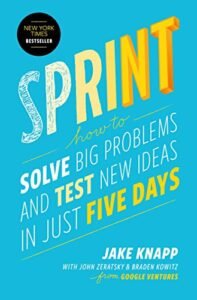|
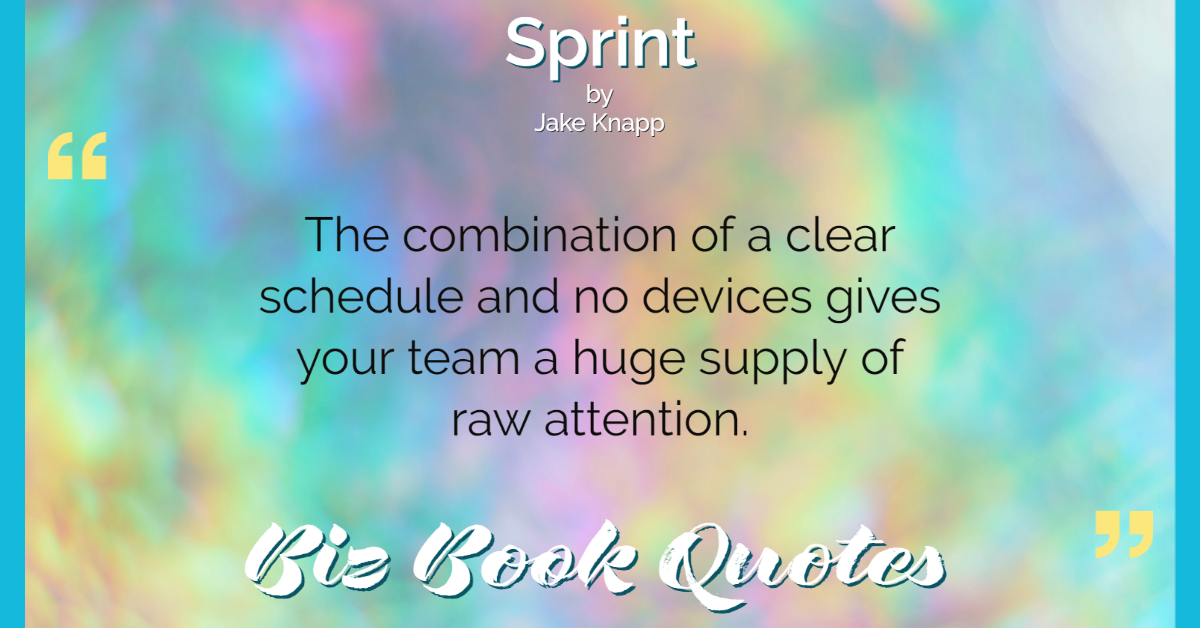
|
Sprint:
The combination of a clear schedule and no devices gives your team a huge supply of raw attention.
|
42 |
|
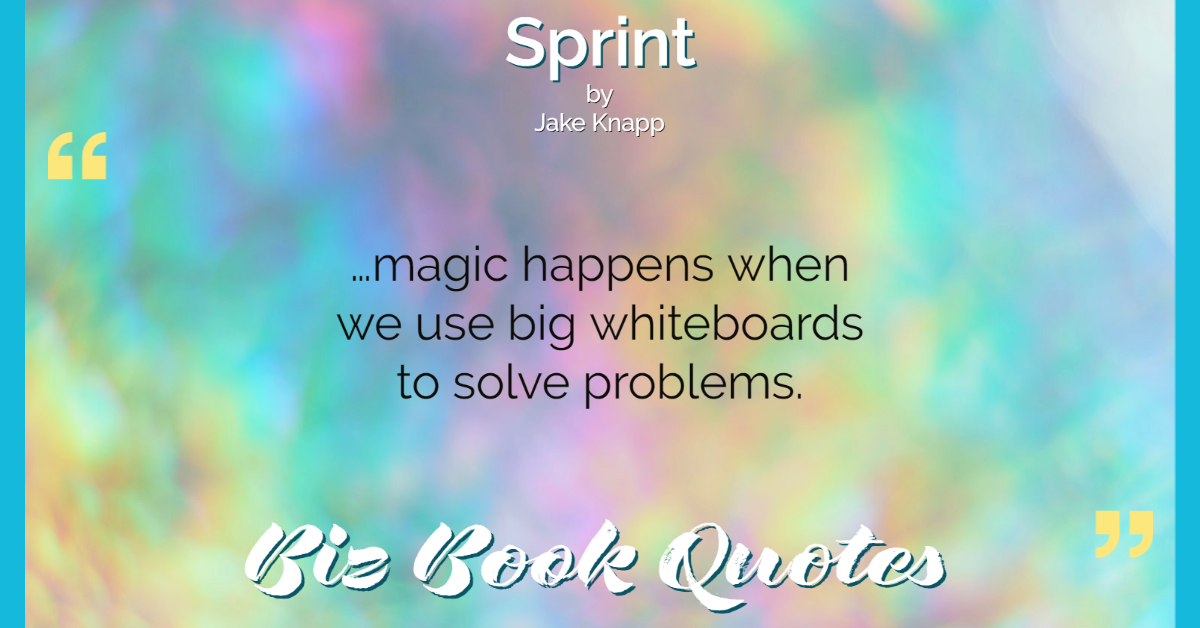
|
Sprint:
…magic happens when we use big whiteboards to solve problems.
|
43 |
|
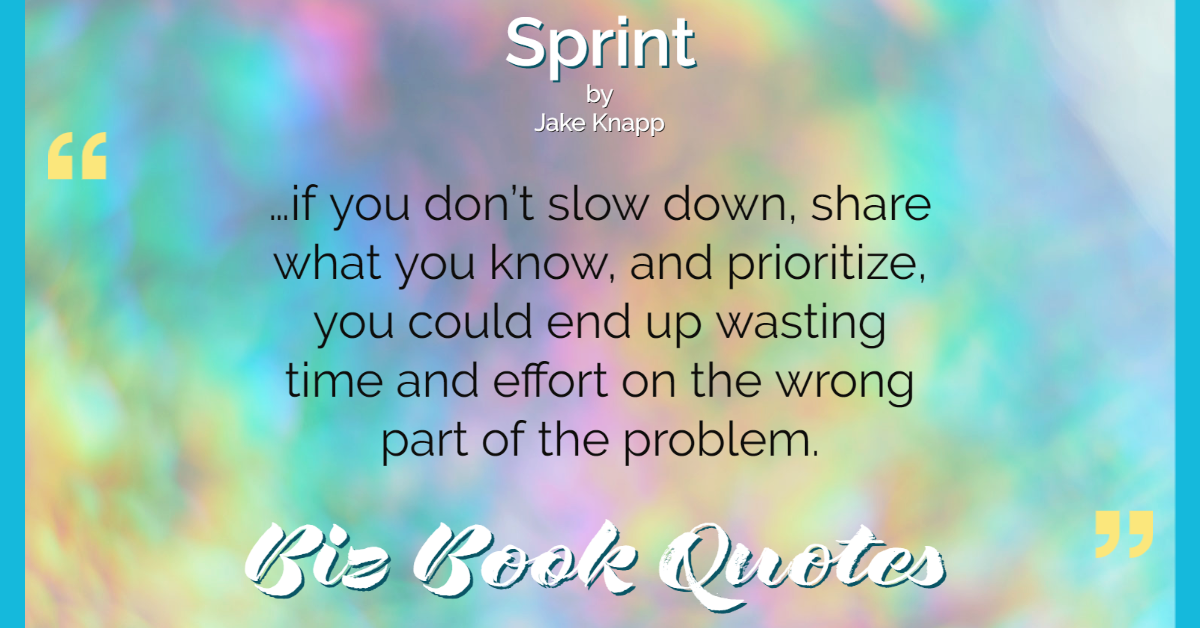
|
Sprint:
…if you don’t slow down, share what you know, and prioritize, you could end up wasting time and effort on the wrong part of the problem.
|
54 |
|
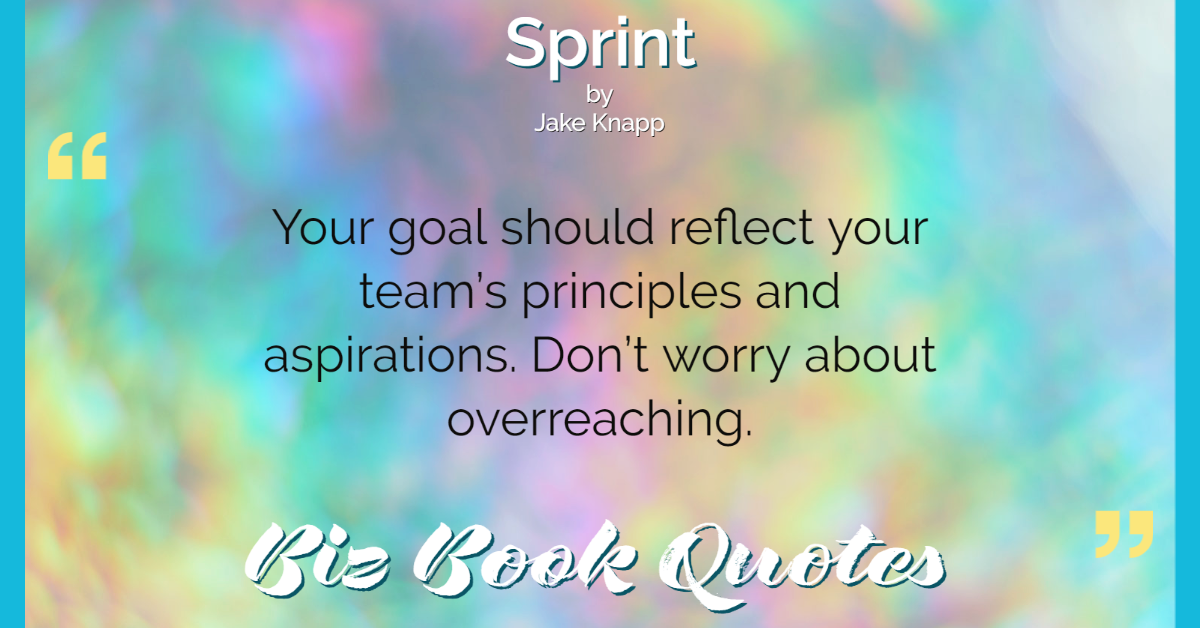
|
Sprint:
Your goal should reflect your team’s principles and aspirations. Don’t worry about overreaching.
|
56 |
|
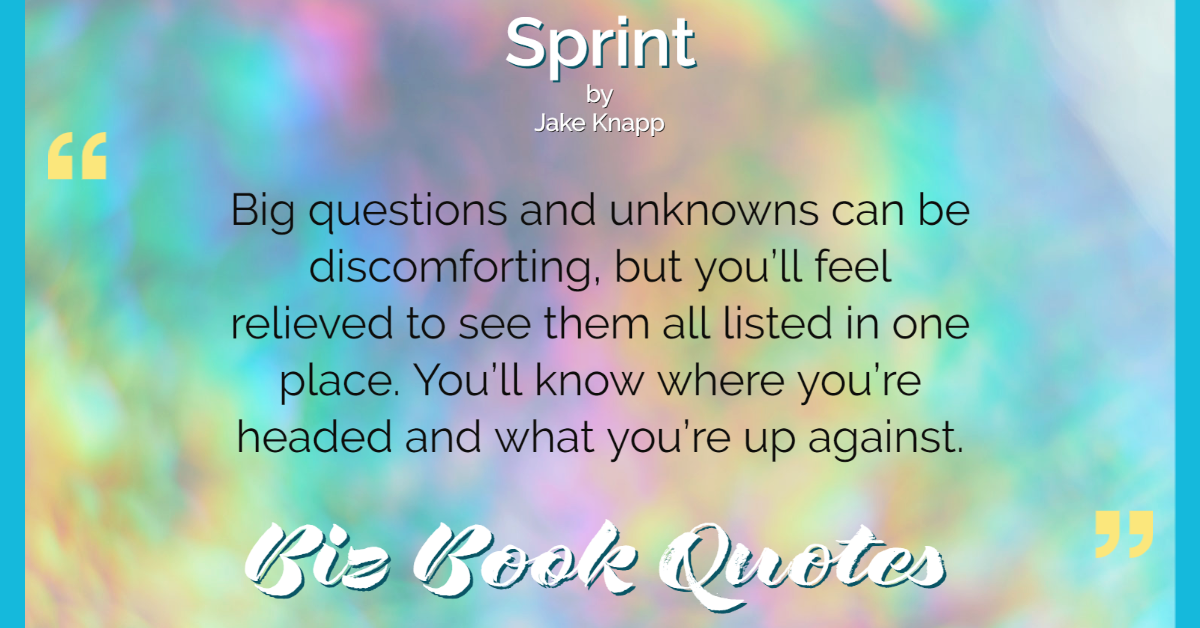
|
Sprint:
Big questions and unknowns can be discomforting, but you’ll feel relieved to see them all listed in one place. You’ll know where you’re headed and what you’re up against.
|
58 |
|
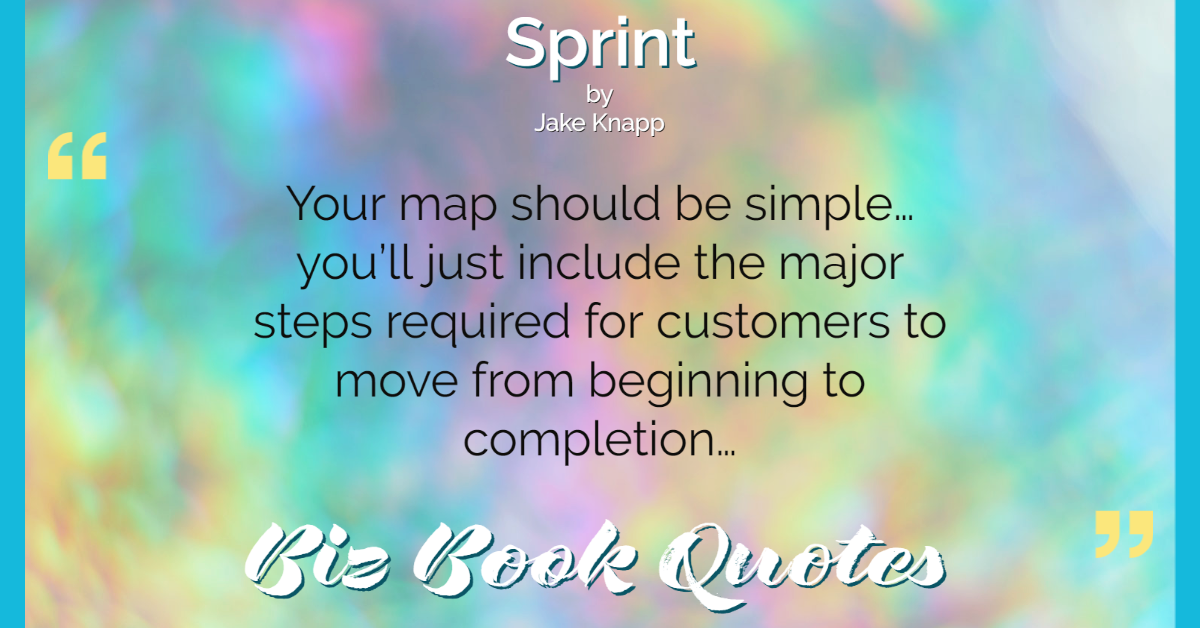
|
Sprint:
Your map should be simple… you’ll just include the major steps required for customers to move from beginning to completion…
|
64 |
|
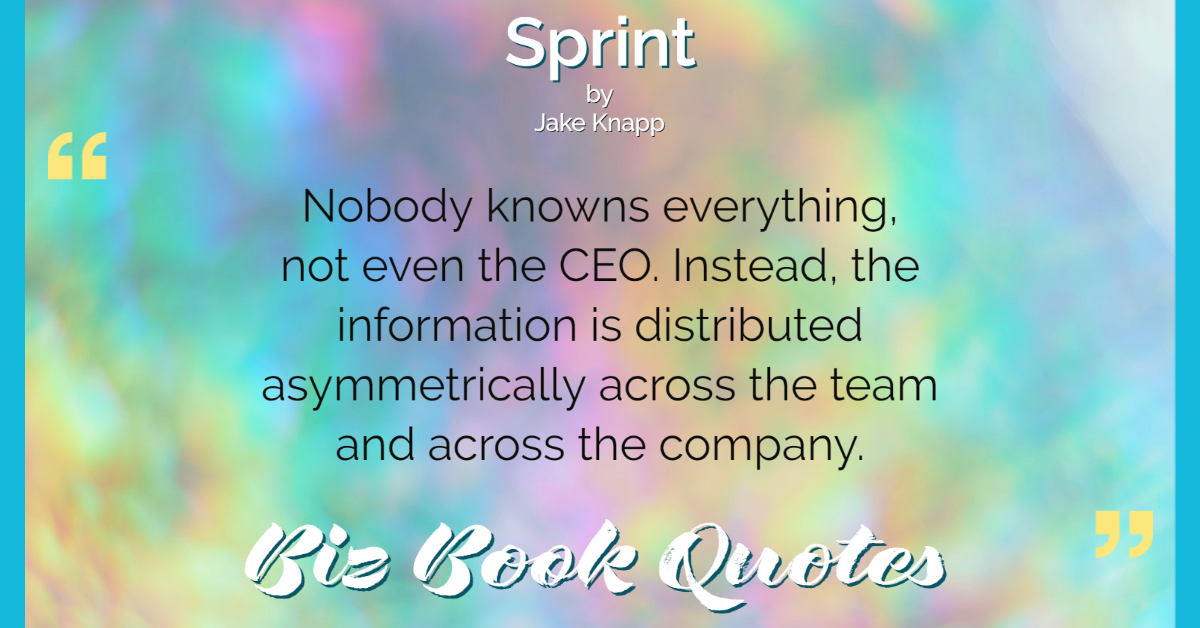
|
Sprint:
Nobody knowns everything, not even the CEO. Instead, the information is distributed asymmetrically across the team and across the company.
|
70 |
|
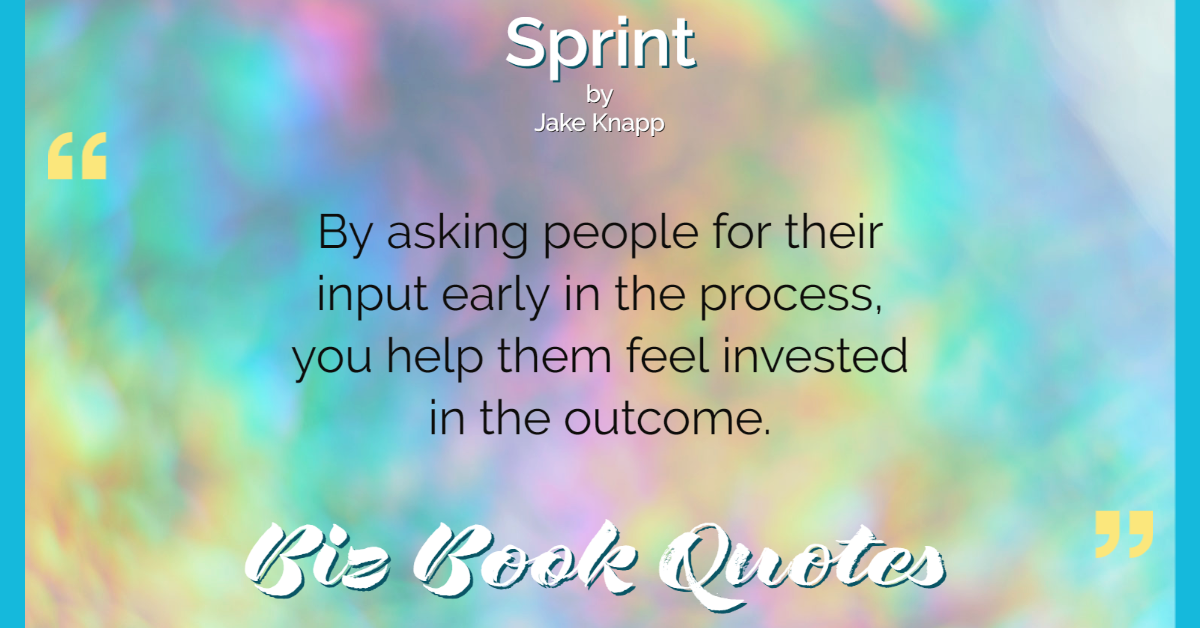
|
Sprint:
By asking people for their input early in the process, you help them feel invested in the outcome.
|
71 |
|
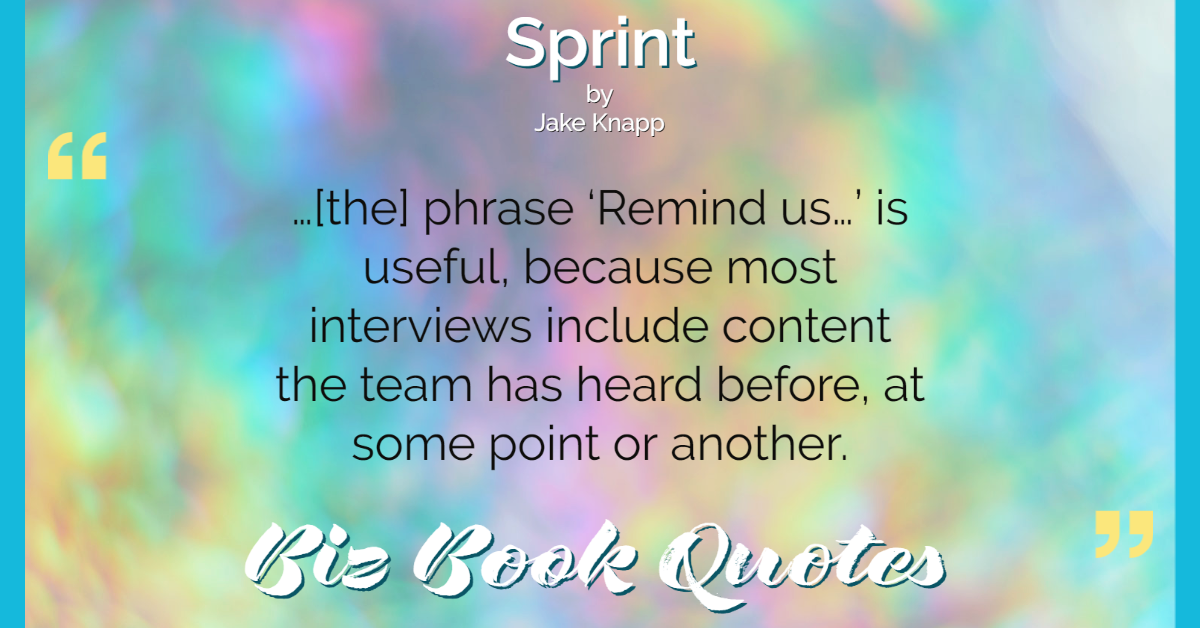
|
Sprint:
…[the] phrase ‘Remind us…’ is useful, because most interviews include content the team has heard before, at some point or another.
|
77 |
|
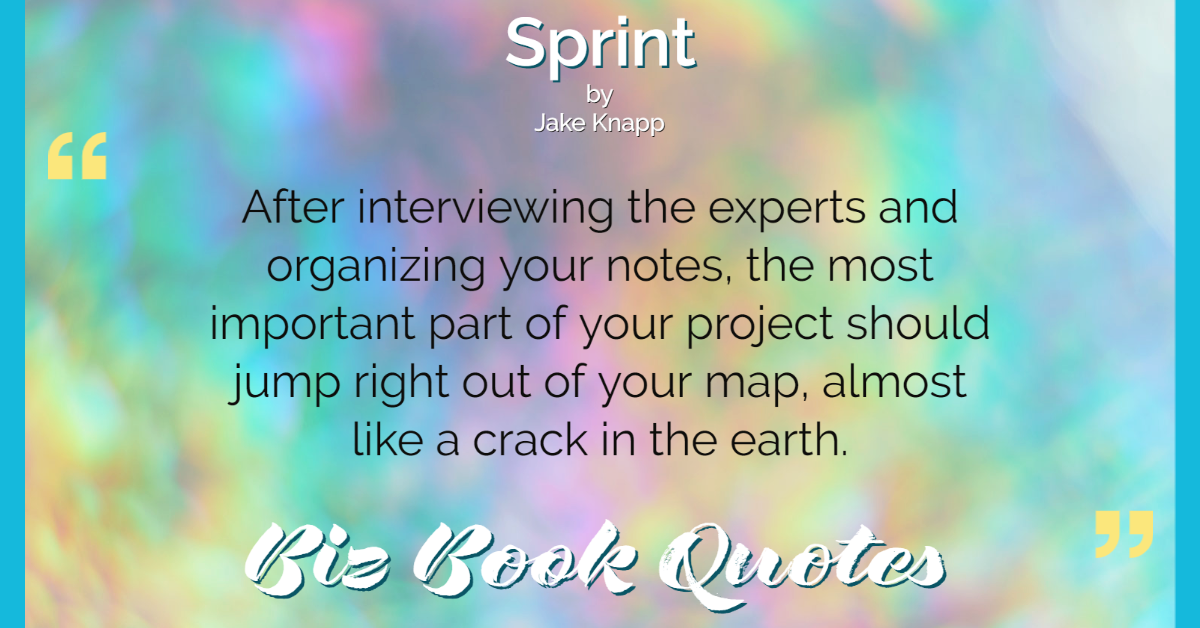
|
Sprint:
After interviewing the experts and organizing your notes, the most important part of your project should jump right out of your map, almost like a crack in the earth.
|
84 |
